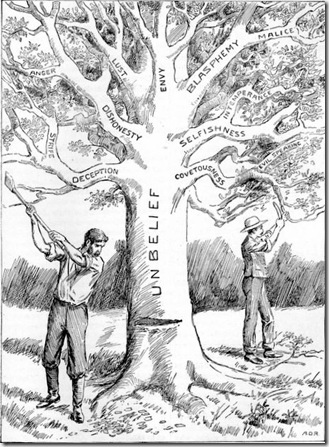I read this report from Mission Network News this morning and thought of the Apostle Paul’s feet that walked miles and miles through Turkey sharing the gospel. He penetrated the inner regions spreading the message of peace and reconciliation in the ancient cities of Pisidian Antioch, Iconium, Lystra, Derbe, Troas, and Ephesus.
Today, Christians are constantly under attack. As recently as April of this year, 3 workers in a Christian publishing office had their throats slit in a gruesome attack motivated by religious hatred.
May God protect what He planted and is planting in this country–in the Book of Acts we see that the Word of God cannot be imprisoned, murdered or snuffed out–it is a Living Word.
7 December, 2007

Turkey (MNN) ― Compass Direct reports good news in a kidnapping in southeastern Turkey. According to their sources, unidentified assailants kidnapped Father Edip Daniel Savci, 42, last Wednesday.Â
Two days later, he was freed by his captors 43 miles north of Midyat where he was kidnapped.  Church officials can’t confirm the identity of his kidnappers or whether a ransom was paid, but kidnappers had made a ransom demand of 300,000 euros.Â
Deputy Governor Aziz Mercan said, “Given the information obtained from the priest, we now know who the perpetrators are, and security forces are tracking them down now.” He declined, however, to give the suspects’ names.
Most of Turkey’s 75 million people are Muslim, and it has barely 100,000 Christians–mostly of Greek and Armenian origin.
Although the incident appears to have been motivated by money, there are scattered reports that mission groups think Turkey’s anti-Christian atmosphere may have influenced the kidnappers.
Pray for opportunities for Christians in Turkey to share the truth of Christ. Despite the government reforms to facilitate joining the European Union, there is no indication of increasing religious freedom.
While the Turkish constitution includes freedom of religion, worship services are only permitted in “buildings created for this purpose,” and officials have restricted the construction of buildings for minority religions. In other cases, those who dare to profess Christ face harassment, threats and prison. Evangelism is difficult.
However, Glenn Penner of Voice of the Martyrs Canada says, “The church is continuing to move forward, and Christians are continuing to witness. But, of course, it does cause some anxiety. There have been a number of attacks on evangelicals in the last two years, and they’re wanting to know, ‘Will our government stand up for us? Will they defend us? Or will they allow us to be shot, killed and attacked with impunity?'”
Pray for those in Christian work in Turkey.



 Nigeria (MNN) —
Nigeria (MNN) — 
